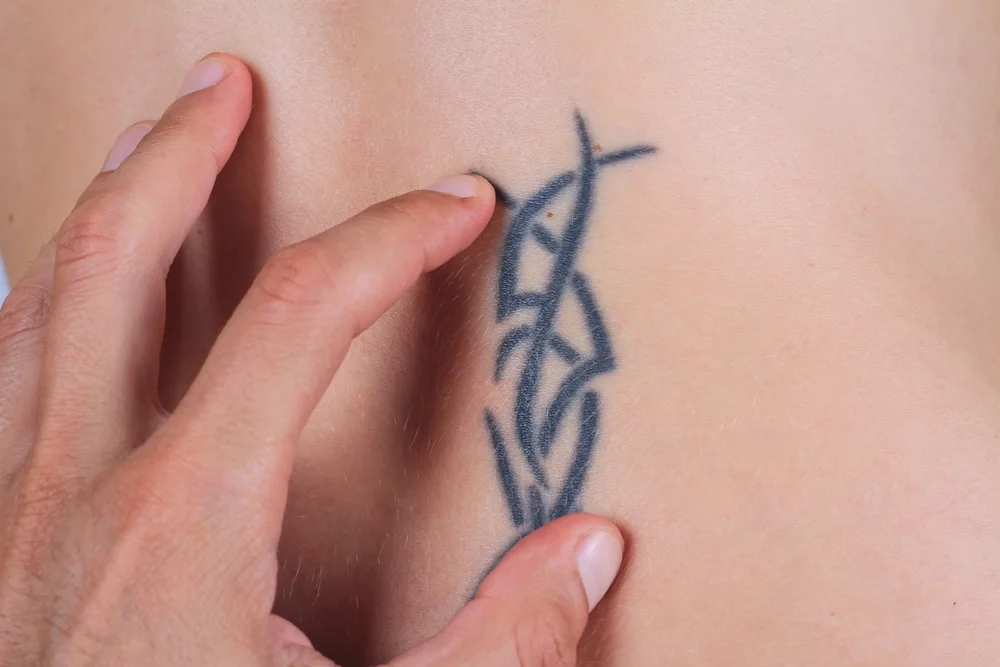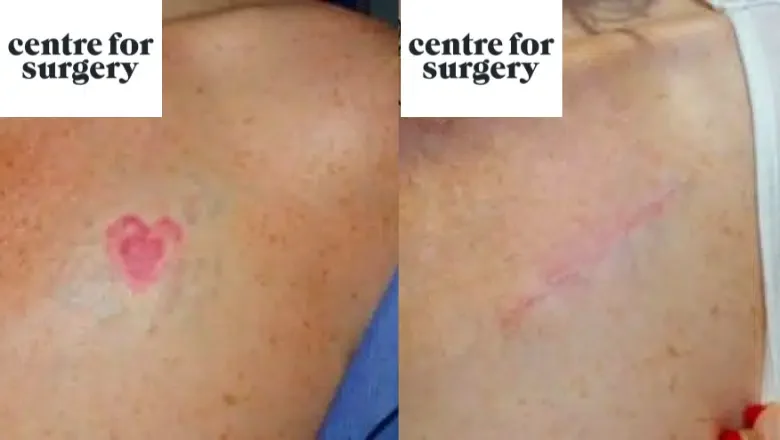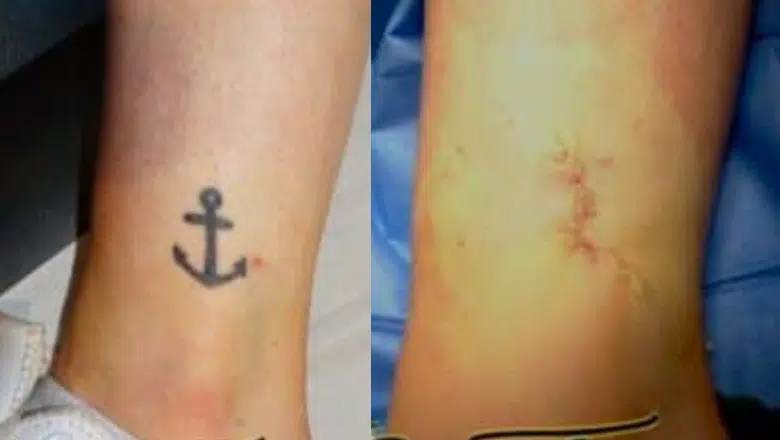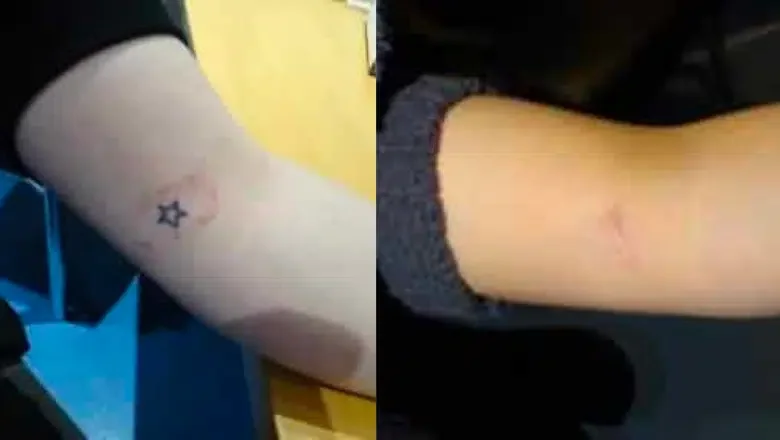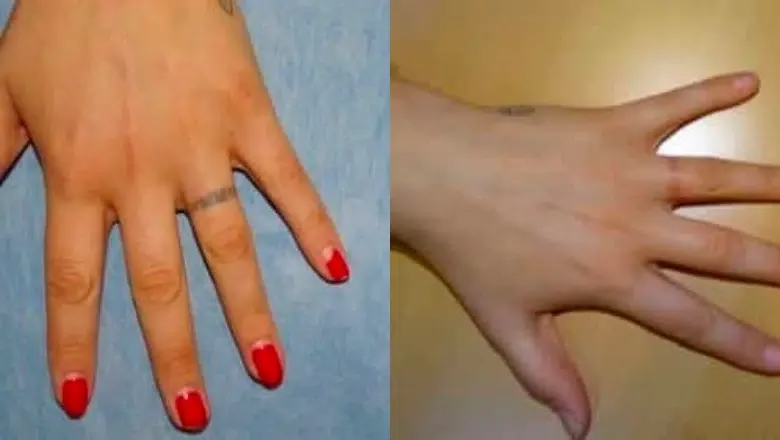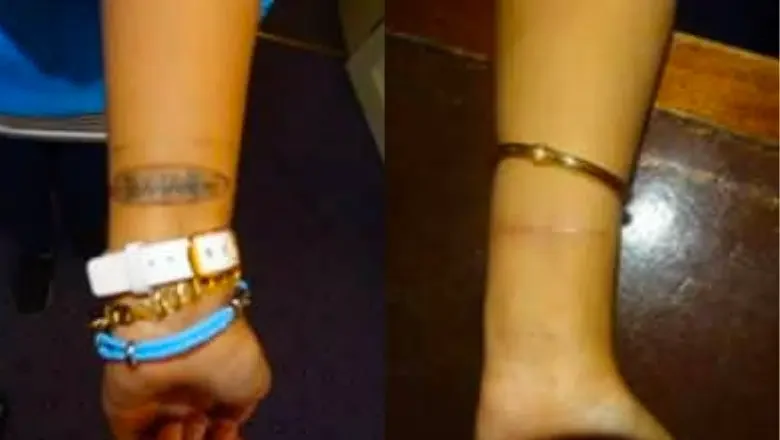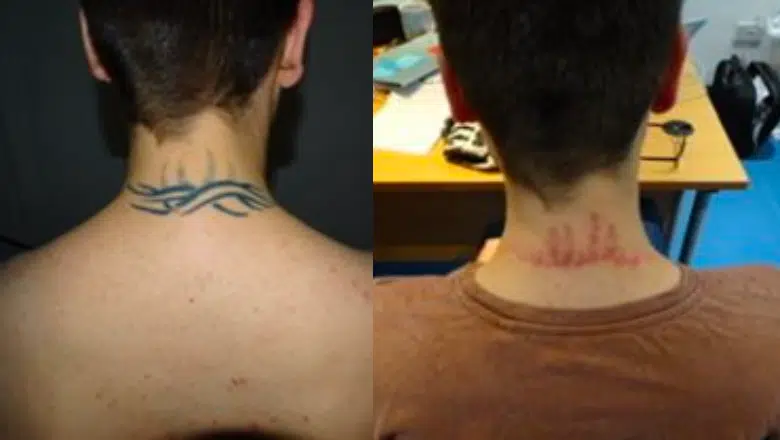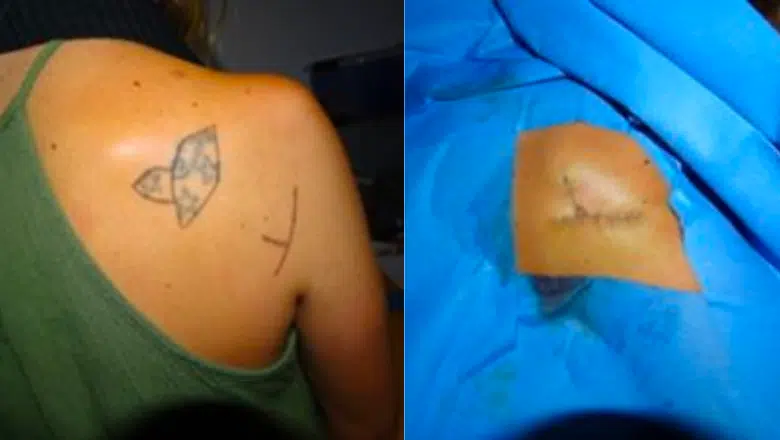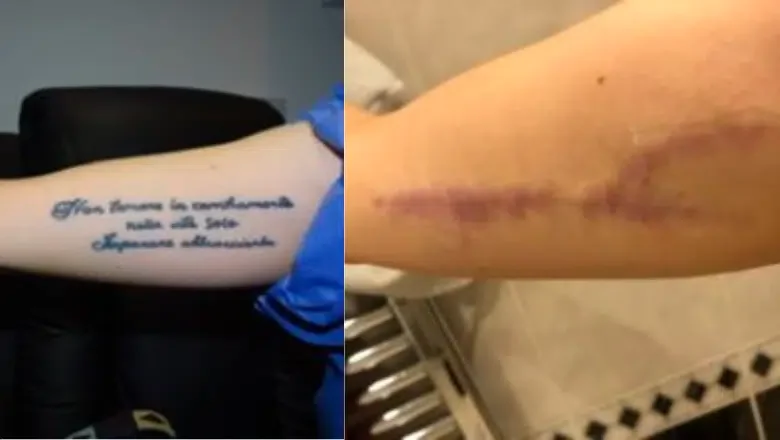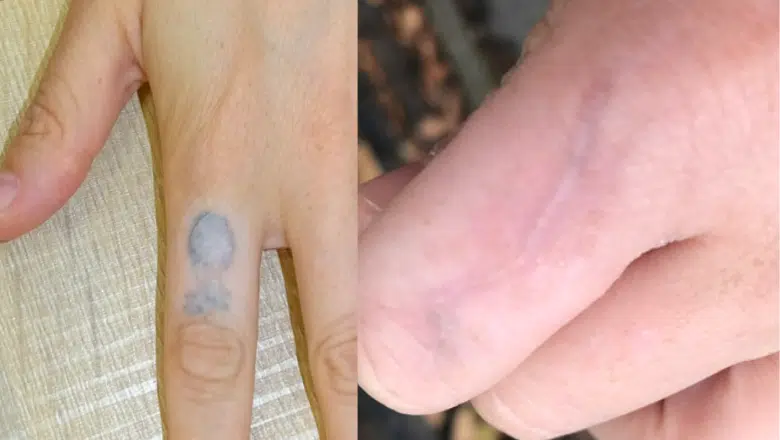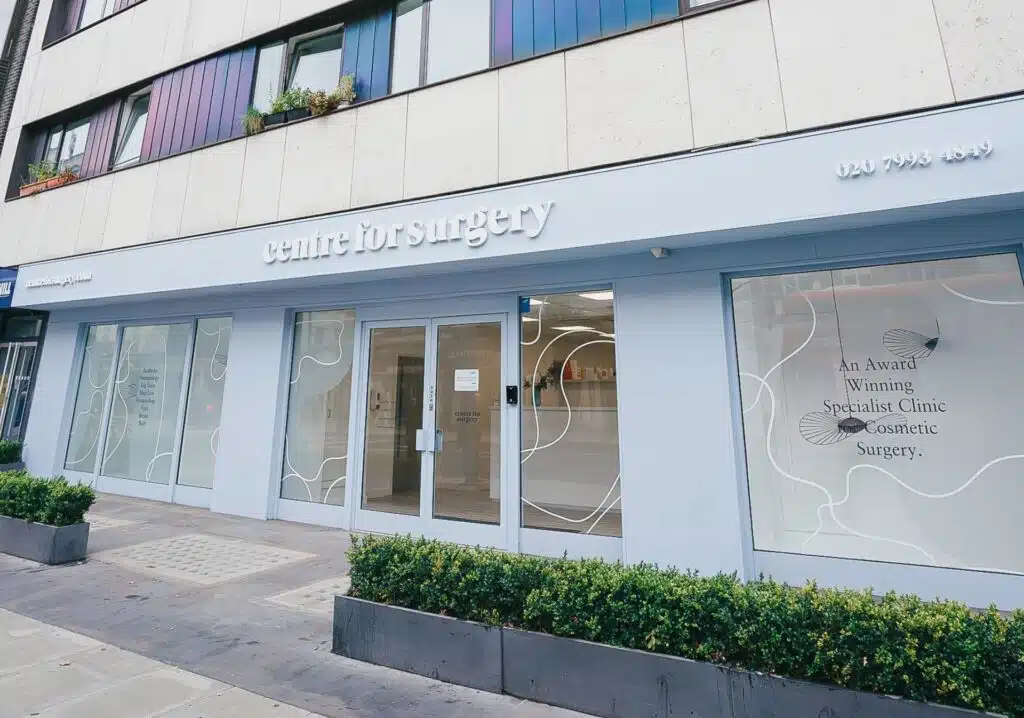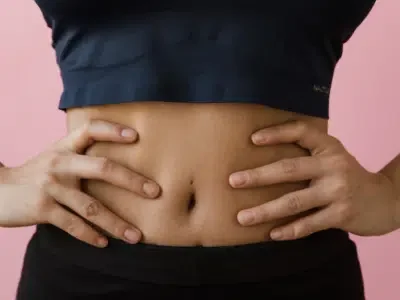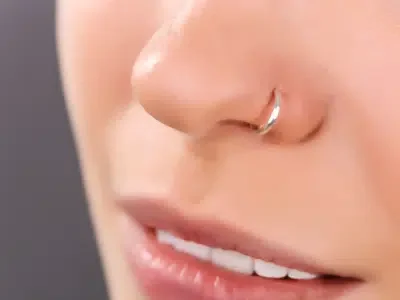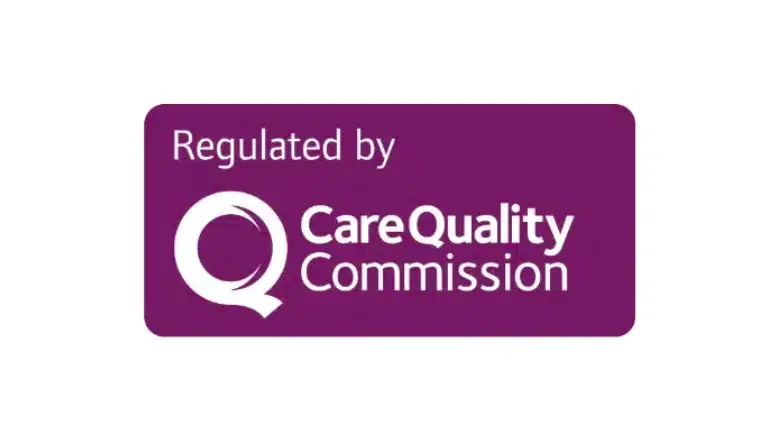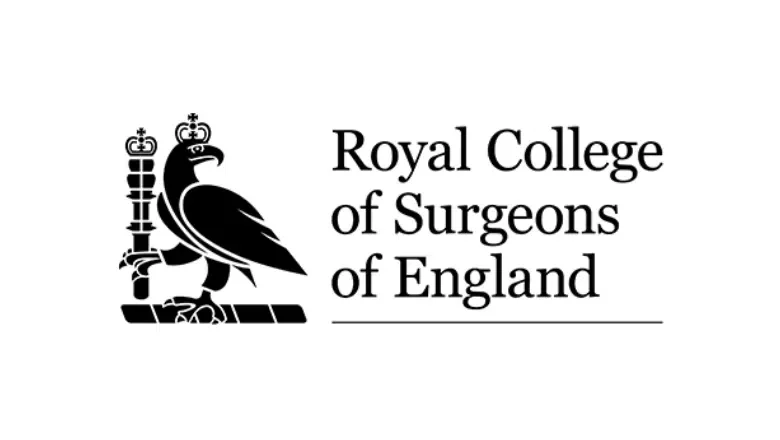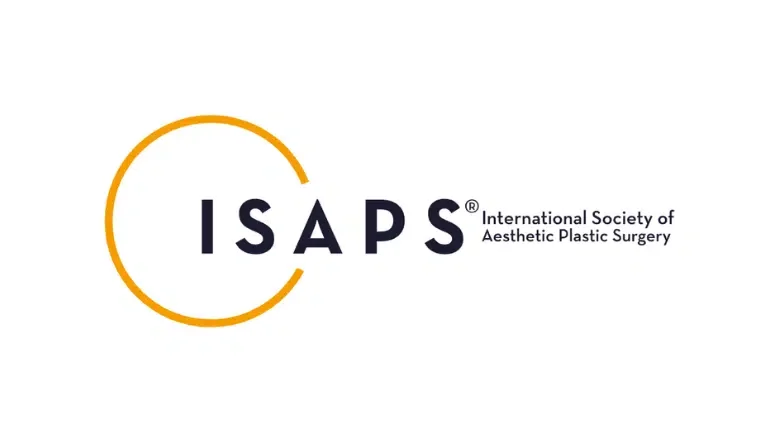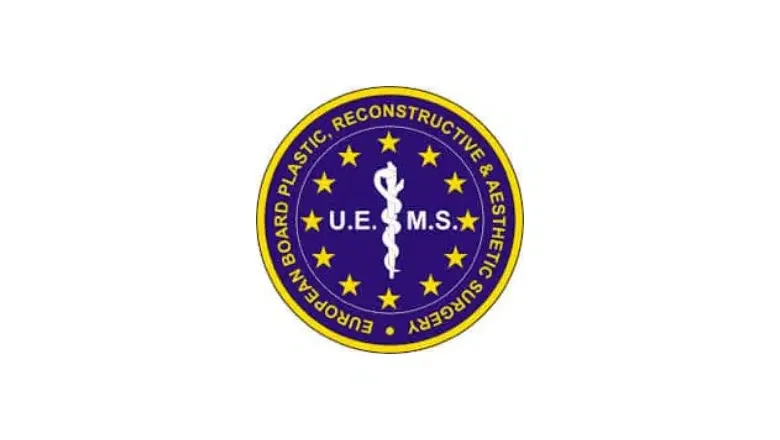Tattoo Removal Surgery in London & UK
Experience the freedom of having clear, tattoo-free skin with our state-of-the-art tattoo removal surgery, performed by our skilled and experienced plastic surgeons.
In recent years, the removal of unwanted tattoos has become increasingly popular. Among the various methods available, surgical tattoo removal stands out as a unique and effective approach, particularly for those looking to quickly eliminate tattoos. This procedure is especially relevant for individuals who have larger tattoos or those where other methods like laser removal aren’t suitable.
At the Centre for Surgery in London, a leading clinic in cosmetic procedures, surgical tattoo removal is performed with the utmost precision and care. This method involves the physical removal of the tattooed skin, followed by suturing the area to ensure optimal healing. It’s an ideal solution for those who have specific types of tattoos that are difficult to erase by other means, such as deep ink penetration or resistant colours.
The process of surgical tattoo removal at the Centre for Surgery begins with a detailed consultation. During this session, a skilled specialist evaluates the tattoo, considering factors like size, location, and the depth of ink penetration. This assessment is crucial in determining the most appropriate surgical technique to use, ensuring that the outcome not only removes the tattoo effectively but also minimises scarring.
One significant advantage of surgical tattoo removal is the immediacy of results. Unlike laser treatments, which require multiple sessions over an extended period, surgical removal offers a one-time solution. This method is particularly beneficial for those who wish to remove their tattoos due to career choices, personal reasons, or for those who want a quick result.
Recovery from surgical tattoo removal varies depending on the size and location of the tattoo. Centre for Surgery provides comprehensive aftercare guidance to ensure a smooth and efficient healing process. It’s important for patients to follow these instructions closely to minimise the risk of complications and achieve the best possible aesthetic outcome.
Surgical Tattoo Removal Before & After
Benefits of Tattoo Removal Surgery
Surgical tattoo removal, as practised at Centre for Surgery in London, offers a unique set of benefits for those looking to remove unwanted tattoos. This method, distinguished from other tattoo removal techniques like laser therapy, involves surgically excising the tattooed skin. Here are the key advantages of choosing surgical tattoo removal:
Immediate Results
One of the most significant benefits of surgical tattoo removal is the immediacy of the results. Unlike laser tattoo removal, which requires multiple sessions over a period of months, surgical removal provides an instant solution. This is particularly advantageous for individuals seeking rapid results, whether for personal, professional, or aesthetic reasons.
Effectiveness on All Tattoo Types
Surgical removal is highly effective on all types of tattoos, regardless of their size, colour, or ink depth. This includes tattoos that are typically challenging to remove with laser treatment, such as those with vivid colours or deep ink penetration.
Minimised Risk of Scarring
The procedure is carried out with precision and care, minimising the risk of scarring. Our surgeons employ advanced techniques to ensure that the skin heals smoothly, resulting in a more aesthetically pleasing outcome.
Suitability for Small and Large Tattoos
This method is versatile and can be used to remove both small and large tattoos. For larger tattoos, surgical removal might be the most efficient and practical choice.
Reduced Risk of Skin Discolouration
Compared to laser tattoo removal, which can sometimes result in skin discolouration, surgical removal significantly reduces this risk. The excision process ensures that the tattooed skin is entirely removed, leaving behind your natural skin tone.
Cost-Effectiveness in Specific Cases
For those with smaller tattoos, surgical removal can be more cost-effective than multiple laser sessions. It provides a one-time solution, eliminating the need for repeated visits and associated costs.
Tailored to Individual Needs
We offer a personalised approach to each case. During the consultation, the surgeon assesses the tattoo and discusses the best approach suited to the individual’s skin type and tattoo characteristics, ensuring a customised treatment plan.
Professional and Safe Environment
We are known for our state-of-the-art facilities and highly trained professionals. Patients can be assured of a safe, hygienic, and supportive environment throughout the procedure and recovery period.
Comprehensive Aftercare
Patients receive detailed aftercare instructions and support, which is crucial for optimal healing and aesthetic outcomes. We prioritise patient care post-procedure to ensure a smooth recovery.
Am I suitable for Tattoo Excision?
If you are considering tattoo removal surgery, it is important to understand the factors determining whether this method suits you. Surgical tattoo removal, offered by specialised clinics like Centre for Surgery in London, involves the physical removal of tattooed skin and is a distinct approach compared to other methods such as laser removal. Here are some key considerations to help you assess your suitability for tattoo removal surgery:
Size and Location of the Tattoo
Due to the nature of the procedure, surgical tattoo removal is often best suited for smaller tattoos. However, it can also be an option for larger tattoos, depending on their location and your skin’s elasticity. Tattoos in areas where the skin can be easily sutured together post-removal are more likely to be suitable candidates.
Type of Tattoo
Some tattoos, particularly those with deep ink penetration or resistant ink colours, may not respond well to laser treatment. In such cases, surgical removal can be a more effective option.
Skin Type and Health
Your skin type and overall health can impact the healing process. Healthy skin with good elasticity is important. Conditions that affect skin healing, like certain autoimmune diseases or a history of keloid scarring, may impact your suitability.
Expectations and Desired Outcome
Understanding the procedure’s nature and realistic expectations regarding scarring and healing is crucial. Surgical removal typically leaves a scar, so it’s important to weigh this against the desire to remove the tattoo.
Personal and Professional Reasons
Your motivation for tattoo removal can also play a role in determining suitability. If you need immediate removal for professional or personal reasons, surgical removal offers a quicker solution compared to multiple sessions required for laser treatment.
Previous Tattoo Removal Attempts
Surgical removal might be a suitable alternative if you have previously tried other tattoo removal methods without success.
Consultation with a Specialist
The most definitive way to determine your suitability is through a consultation with a skilled professional at Centre for Surgery. We can assess your tattoo, discuss your medical history, and provide tailored advice.
Tattoo excision procedure
Surgical tattoo removal involves various techniques to remove unwanted tattoos effectively. Each method is selected based on the tattoo’s size, location, and the individual’s skin type. Here’s an insight into the different surgical techniques used for tattoo removal:
Excision
This is the most common surgical technique for tattoo removal. The process involves cutting out the tattooed skin and then stitching the remaining skin back together. Excision is particularly effective for small to medium-sized tattoos. For larger tattoos, the surgeon might perform the excision in stages or use skin grafts to cover the area.
Serial Excision
This technique is used for larger tattoos that cannot be removed in one session. The tattoo is excised in stages, allowing the skin to heal between surgeries. This method is beneficial as it allows for more skin elasticity and reduces the risk of scarring. Each stage gradually removes more of the tattoo until it is completely gone.
Skin Grafting
In cases where direct closure of the skin is not possible (usually in large tattoos), skin grafting may be used. This involves taking a piece of skin from another part of the body (donor site) and grafting it onto the area where the tattoo was removed. This technique is more complex and is typically reserved for extensive tattoos where other methods are not feasible.
Tissue Expansion
This advanced technique is used for very large tattoos or when there is a concern about excessive scarring. It involves implanting a balloon-like device under the skin near the tattoo. Over time, the device is gradually filled with saline, stretching the skin. Once enough skin has been grown, the tattoo can be excised, and the newly grown skin is used to close the wound.
Laser-Assisted Tattoo Removal
In some cases, a combination of laser treatment and surgery might be used. Laser treatment can fade the tattoo, making surgical removal easier and limiting the size of the area that needs to be excised.
Reconstructive Techniques
In certain cases, especially where large areas of skin are removed, reconstructive techniques may be used to improve the aesthetic outcome. This can include flap surgery, where a flap of skin from a nearby area is used to cover the excised area.
Recovery after Tattoo Removal Surgery
Recovery after tattoo removal surgery is a crucial phase, as it directly influences the effectiveness of the treatment and the quality of the healing process. The duration and specifics of recovery can vary depending on the surgical technique used, the size and location of the tattoo, and individual healing rates. Here are some key points to consider for a smooth and successful recovery:
Immediate Postoperative Care
After the surgery, the treated area will be bandaged to protect it and promote healing. It’s essential to keep the bandage clean and dry. Your surgeon will provide specific instructions on how to care for the wound.
Pain Management
Some discomfort and pain are expected after the surgery. Your surgeon may prescribe pain medication or recommend over-the-counter pain relievers to manage this. It’s important to follow the prescribed dosage and instructions.
Wound Care and Hygiene
Proper wound care is critical to prevent infection and promote healing. This includes gently cleaning the area as directed, applying any prescribed ointments, and changing dressings regularly. Avoid soaking the area in water until it is fully healed.
Monitoring for Complications
Be vigilant for signs of infection or other complications, such as increased redness, swelling, warmth, or discharge from the wound. If you notice any of these symptoms, contact your surgeon immediately.
Rest and Activity Modification
Allow your body to rest and heal. Avoid strenuous activities and exercise that might stretch or stress the treated area. Follow your surgeon’s advice on when it’s safe to resume normal activities.
Sun Protection
Protecting the healing skin from sun exposure is vital. Sunlight can cause discolouration and affect the healing process. Use a high-SPF sunscreen on the area or keep it covered when outdoors.
Scar Care
Scarring is a common aspect of surgical tattoo removal. Once the wound has healed, your surgeon might recommend treatments to minimise scarring, such as silicone gel or sheets. Massaging the area gently can also help reduce scar tissue formation.
Follow-up Appointments
Attend all scheduled follow-up appointments with your surgeon. These are important to monitor your healing and address any concerns you may have.
Healthy Lifestyle Choices
A healthy diet, staying hydrated, and not smoking can significantly improve your healing process. A balanced diet rich in vitamins and minerals supports skin repair and overall recovery.
Emotional Support
Surgical tattoo removal and recovery can be emotionally taxing for some. Don’t hesitate to seek support from friends, family, or professional counselling if needed.
Essential Strategies for Reducing Scarring Following Tattoo Removal Surgery
Reducing scarring after tattoo removal surgery is an important aspect of the healing process, and there are several effective ways to achieve this. Firstly, closely following the aftercare instructions provided by your surgeon is crucial. These guidelines are designed to promote proper healing and minimise scarring.
After the surgery, it’s essential to keep the area clean and dry to prevent infection, which can worsen scarring. Gently cleansing the area and applying any prescribed ointments can aid in this. Moreover, avoiding strenuous activities that might stress the healing wound is recommended. This helps in preventing the reopening of the wound and reduces the risk of scar formation.
Protecting the area from sun exposure is another key factor. The sun can cause scars to darken and become more noticeable, so using a high-SPF sunscreen or covering the area when outdoors is advised.
Once the wound has healed, scar minimisation treatments can be considered. Silicone gels or sheets have been shown to be effective in reducing scar appearance. These products work by keeping the scar hydrated, which can soften the scar tissue and reduce redness.
Massaging the healed area gently with moisturisers or prescribed creams can also be beneficial. This practice improves circulation to the area and can help in breaking down the scar tissue, leading to a softer and less noticeable scar.
In some cases, follow-up treatments might be necessary for optimal scar reduction. This could include laser therapy or other dermatological treatments aimed at improving the skin’s appearance.
It’s also important to maintain a healthy lifestyle during the recovery period. A balanced diet rich in vitamins and minerals supports skin repair and overall health, which can positively impact the healing process.
Surgical Tattoo Removal at Centre for Surgery: Transforming Lives with Expertise and Care
At the Centre for Surgery in London, we pride ourselves on offering exceptional surgical tattoo removal services, tailored to meet the unique needs of each patient. Our state-of-the-art clinic on Baker Street is home to some of the most skilled surgeons in the field, dedicated to providing safe, effective, and personalised care.
Patient Testimonials:
- Emma’s Journey: “After years of regretting a tattoo from my youth, I finally decided to get it removed at the Centre for Surgery. The team was incredibly supportive, and the results were beyond my expectations. My confidence has soared since the removal.”
- Jake’s Experience: “The professionalism at Centre for Surgery was evident from my first consultation. The surgical removal was smooth, and the aftercare was top-notch. I’m grateful for their expertise in helping me start a new chapter.”
- Sophia’s Story: “I was nervous about the idea of surgery, but the compassionate care and detailed explanation provided by the Centre for Surgery team put me at ease. The procedure was a success, and I couldn’t be happier with the outcome.”
For those considering surgical tattoo removal, our clinic offers comprehensive finance options, including 0% APR with Chrysalis Finance, making the procedure accessible to a wider range of patients.
Learn More and Get In Touch:
- Discover more about our ethos and approach to patient care on our About Us page.
- Explore our Finance Options to find a plan that suits your needs.
- Dive into a wealth of information on our Plastic Surgery Blog, where we discuss various aspects of cosmetic procedures.
- Find answers to common questions on our Clinic FAQs.
- Learn more about our Baker Street clinic and its offerings here.
To book a consultation or for any inquiries, please reach out to us:
- Phone: 0207 993 4849
- Email: contact@centreforsurgery.com
- Address: 95-97 Baker Street, London W1U 6RN
At the Centre for Surgery, we are committed to helping you achieve your aesthetic goals with utmost care and professionalism. Contact us today to begin your journey towards a tattoo-free future.
FAQs
-
Am I an ideal candidate for surgical tattoo removal?Patients who are bothered by the presence of their tattoo and may have found laser tattoo removal to be ineffective may be a suitable candidate for tattoo excision under local anaesthetic at Centre for Surgery. It is important to bear in mind that surgical tattoo removal is only applicable for smaller tattoos. Large and extensive tattoos that cover multiple body areas will not be suitable for surgical tattoo excision
Anyone wishing to get a tattoo removed quickly is considered an ideal candidate. -
Who will perform my tattoo excision treatment?Surgical tattoo removal is carried out by one of our highly expert and skilled plastic surgeons.
All of our plastic surgeons have years of experience in reconstructive surgery and are skilled in both skin graft and local tissue flap reconstruction. Skin grafts and local tissue flaps are occasionally used in more complex tattoos for adequate skin coverage -
Is surgical tattoo removal safe?Surgical tattoo removal is a very straightforward and safe procedure although you should be aware of all the potential risks and complications before proceeding with a tattoo excision procedure at Centre for Surgery.
Your surgeon will explain all the potential risks and complications at your consultation. -
What does tattoo excision involve?Surgical tattoo removal first involves accurate marking of the tattoo on the skin followed by the injection of local anaesthetic into and around the tattoo. The tattoo is removed via surgical excision and for small tattoos it may be possible to remove it in one sitting. For larger tattoos your doctor may recommend a second stage removal for the reminder of the tattoo. After the tattoo is removed the wound edges are reapproximated and closed with sutures. In some cases your doctor may use non-dissolvable sutures As these give better scar cosmesis. In cases of very large tattoos or tattoos in sensitive areas, your doctor may choose to use a skin graft for coverage of the skin defect left by the tattoo removal.
-
How do I prepare for surgical tattoo removal?There is no special preparation required for tattoo excision although it is recommended to follow the instructions below to reduce the risk of complications following surgery.
- It is important to stop smoking as continued smoking reduces blood flow in the skin and can lead to delayed wound healing and possible injection. For active smokers your doctor may advise use of nicotine replacement products.
- You should avoid taking certain medicines including aspirin and anti-inflammatory tablets and also herbal supplements as these can increase the risk of bleeding.
- You should ensure you have an adult escort to collect you after your procedure is complete and to look after you during the first 24 hours as you will still be drowsy from the effects of the anaesthetic. -
How long does tattoo excision take to perform?The length of the procedure for tattoo excision depends on the size of the tattoo and where it is located. Larger tattoos will require more surgical time compared with smaller tattoos. On average, tattoo removal takes between 30 minutes to 120 minutes.
-
Is surgical tattoo removal painful?Surgical tattoo removal is a very well tolerated procedure. Your surgeon will inject long-acting local anaesthetic into and around the tattoo to eliminate any sensation both during the procedure and for up to 6 hours after the procedure. In addition to this you will be given a prescription for oral painkillers for you to take regularly for the first few days after the tattoo excision.
-
Does tattoo excision result in scars?All surgical incisions result in the formation of a scar, surgical tattoo removal is no different. Your surgeon where possible will try to place incisions in natural skin folds to reduce the visibility of the resulting scar. In darker skinned patients, the scar may sometimes be more prominent also known as a hypertrophic scar or keloid scar.
Centre for Surgery are experts in scar management and have full access to gold standard scar revision treatments including laser resurfacing and Morpheus8 RF microneedling. -
What downtime is associated with surgical tattoo removal?For smaller tattoos, patients may return to virtually all activities straight away. Patients with larger tattoos that may restrict arm or leg movement should look to take it easy over the first 5 to 7 days to allow the wound to heal without any complications.
It is normal to have a degree of mild discomfort for the first few days and oral painkillers are sufficient in virtually all cases to control symptoms. This should not limit your normal activities. -
What are the risks associated with surgical tattoo removal?As with any surgical procedure, tattoo excision carries a number of potential risks and complications including wound infection, prominent scarring, wound breakdown and bleeding. Fortunately all these risks are very uncommon when performed by an expert plastic surgeon at Centre for Surgery. Your surgeon will fully explain all the potential risks of surgical tattoo removal at your consultation.
What To Expect
Consultation
We would advise all prospective patients to first have a consultation with an expert plastic surgeon. At your consultation you’ll be able to discuss with your surgeon Your goals for treatment as well as to discuss what can be achieved given the size and shape of your tattoo.
Your surgeon will then discuss all the possible options including a possible requirement for graft or flap reconstruction . The surgeon will then take photographs of the tattoo and make a number of measurements to plan treatment.
The following are examples of questions you could ask your surgeon at the consultation:
Am I a good candidate for tattoo excision ?
What can I do to help get the very best possible results?
What is the best surgical technique for my tattoo?
What sort of recovery can I expect after my procedure?
What happens if I am not happy with the results?
Am I able to see before and after photos of patients who have undergone similar treatment?
Your surgeon will then explain all the potential risks and complications of surgical tattoo removal along with providing full information on pre-and post operative instructions. Your medical history will be recorded including any previous operations. What medicines you may be taking and any allergies along with other important questions.
If you are deemed to be a good candidate for surgical tattoo removal your patient coordinator will get in contact and explain the next steps. You are welcome to come and see your surgeon for a further follow-up consultation so you are as well informed as possible before surgery.
Preparing for Surgery
If you decide to have tattoo excision then our clinical support team will be in touch to prepare you for the procedure. The following is recommended to reduce the risk of complications:
- You should stop smoking at least six weeks before the procedure as smoking tobacco is associated with a higher risk of wound complications.
- you should not take aspirin or any medicines that contain aspirin such as anti-inflammatory medicines.
- If you are having deep sedation or a general anaesthetic you should avoid the consumption of any food six hours before surgery and you may only have small sips of water up to 2 hours before your surgery time.
Day of Surgery
You should aim to arrive for your tattoo removal procedure one hour before the scheduled start time off the surgery. When you are admitted a nurse will record your blood pressure pulse temperature and other vitals and you will then be seen by the surgeon who will mark the area of the tattoo
Surgical tattoo removal most commonly takes place under local anaesthetic and takes roughly 1 to 2 hours to complete. The location of the incisions and the technique for tattoo removal will differ based on what has been planned at your consultation.
Recovery & Aftercare
It is uncommon to feel any discomfort after the procedure but you may have some mild soreness for up to 3 days after the procedure. If necessary you can take simple oral painkillers as required.
After the procedure is complete you will spend some time in our recovery suite for up to a couple of hours which depends on whether you had a local anaesthetic or local anaesthetic combined with sedation. Once you have made a full recovery from the anaesthetic you will be allowed to go home accompanied by a responsible escort.
You will need to return approximately 1 to 2 weeks after your tattoo excision procedure to be reviewed by one of our post-operative nurses where your dressings will be removed and the incision sites will be inspected. Advice on optimum scar healing will be given at this point. Our post-operative support team are available 24 hours to address any questions or concerns you may have
You will come in at roughly 6 to 8 weeks after your procedure to be reviewed by your surgeon for a final assessment of your healing.


